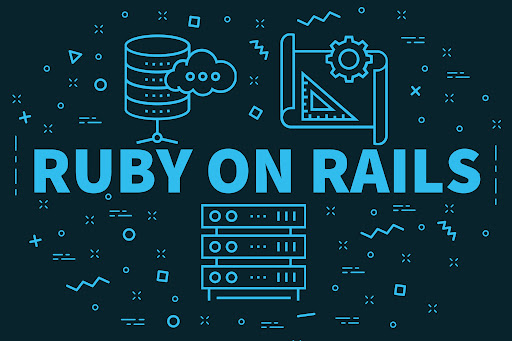In the world of web development, building up fast and reliable backend services becomes integral. That’s where Ruby on Rails, often just called Rails, comes into the picture. Rails is a powerful framework that assists developers in engineering sophisticated websites with a minimal number of lines of code.
This blog will be your comprehensive guide on how to build Rails API applications that can effectively serve dynamic front-end applications.
Why Rails for API Development?
Rails, known for its ease and fast rate, is great for building dynamic web applications. It features the “Convention over Configuration” principle, so it is already programmed to expect what you’re trying to do and makes the easier and most common tasks straightforward, so you can dedicate your time and energy to writing your application’s creative and unique sections rather than the tiring setup and configuration.
This provides more reason to use Rails when doing API development, as you need an API with scalability, maintainability, and efficiency in the background.
APIs, which stands for Application Programming Interfaces, are the base and pillar on which modern web services are established and implemented. In a functioning operating system, the different applications are able to interact with each other. Rails provides you with APIs that are robust, yet intuitive as it boosts its powers with inbuilt features and exhaustive libraries.
Why Hire Ruby on Rails Developers?
For businesses looking to leverage Rails for their backend services, it might be beneficial to hire dedicated Ruby on Rails developers. These specialists, with the required expertise and experience, can actually put together strong APIs (application programming interfaces) that are capable of scaling as well as being resilient to abuse and attacks.
They do not only deliver the essence of website creation for you but they can also help you navigate web development complexities; thus, your project is completed just in time and correctly. By having someone devoted to an area of specific need, the individual can attend to their core business while having the technicalities of the given trade explained to them.
Starting with Rails API
Creating a new API with Rails is straightforward. You can use the Rails command-line tools to generate a new API application with just one command. This sets up your project with the necessary configuration for an API application, removing all the components that are not needed for an API, such as views and assets, making your application leaner and faster.
Setting up the project is the very first step and you will feature the models, controls, and routes once the structure is in place. Rails makes it easy to define your data model and then automatically generate the database schema. Controllers handle the incoming requests and interact with the model to retrieve or save data, and then render the response, usually in JSON format, which is perfect for APIs.
Best Practices for Rails API Development
To build a robust Rails API, following best practices is essential. Here are a few tips to get you started:
- Keep Your Code Clean and Well-Organized
Rails encourages clean coding practices and a well-structured codebase. This makes your application easier to maintain and scale.
- Use Versioning for Your API
This allows you to make changes and improvements to your API without breaking compatibility with existing clients.
- Implement Thorough Testing
Rails comes with built-in support for testing. Utilize this particular tool to build tests for your models, controllers, and routes in order to confirm that the process of the API is what one expects.
- Secure Your API
Security should never be an afterthought. Put in place authentication, authorization, and therefore input validation so as to protect your API from unauthorized login or malicious input irrespective of the nature of the source.
- Optimize for Performance
The cache mechanism of Rails and its database optimization strategy have many benefits in order to help you achieve the maximum speed of your API performance.
Conclusion
Rails API platform gives you a combination of simplicity, freedom, and power to shape the back end of your services. Whether a small in-house API or a large-scale web service, you can expect the kind of support necessary for a successful project from Rails.


